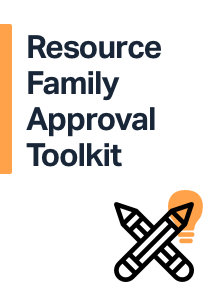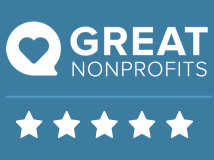LA County Eviction Moratorium
What is the LA County Eviction Moratorium?
The LA County Temporary Eviction is effective through September 30, 2021 and can be extended by the County Board of Supervisors on a month-to-month basis. The Moratorium implements a countywide ban on evictions for residential and commercial tenants. During the Moratorium, tenants may not be evicted for COVID-19 related non-payment of rent.
How does the Eviction Moratorium work?
Tenants must notify their landlord within 7 days after rent is due that they are unable to pay due to a loss of income related to COVID-19. Tenants will have 12 months following the end of the Moratorium to pay back any amount due. A template that can be used to notify landlords of your inability to pay can be found here.
What rights do I have as a tenant after notifying my landlord of my inability to pay rent due to COVID-19?
- The right to a 12 month deferment period after the Moratorium ends to pay any deferred rents owed. All past due rent must be repaid by the end of the 12 month deferment period.
- The right not to be charged interest or late fees on deferred rent.
- The right not to be evicted after the Moratorium ends for not having paid rent during the period of the Moratorium provided that all rents owed are repaid no later than 12 months after the Moratorium ends.
Questions should be directed to (833) 223-RENT (7368) or rent@dcba.lacounty.gov
If you live in LA county and are being evicted because you can’t pay rent due to COVID-19:
- Inner City Law Center: Potential new clients who are facing possible eviction at the Stanley Mosk Courthouse at 111 N. Hill Street should email evictions@innercitylaw.org. Inner City Law Center will make every effort to reply to your email within two business days. Current Inner City Law Center clients should dial the main line at (213) 891-2880, dial the extension of the attorney or paralegal who is helping you with your case, and leave a voice message.
- Shriver Project: Potential clients whose case is at the Stanley Mosk Courthouse can call (818)485-0576 or email ShriverSHpublic@nlsla.org (8:30am-12pm and 1-4pm Monday through Thursday; 8:30am-12pm Friday).
- Neighborhood Legal Services Los Angeles: Potential new clients should contact the Neighborhood Legal Services General Help Line at 1-800-433-6251. The help line is open between 9:00 a.m. and 5:00 p.m., Monday through Friday. Current Neighborhood Legal Services clients should contact the staff member who has been helping you.
Utilities Assistance
The California Public Utilities Commission maintains a comprehensive list of Covid19 utility protections and programs statewide here and payment assistance programs here. Below are the highlights:
If you have PG&E, SoCal Edison, SoCal Gas, or another investor-owned utility:
- Flexible Payment Plans: The electric and natural gas IOUs are offering customers the opportunity to create flexible payment plans if financial hardship is a challenge. The full list and details on each company’s plan and contact info is here. For water and sewer utilities, click here.
- Discounts on energy bills for qualified households
- California Alternate Rates for Energy (CARE) provides a 30-35% discount on your electric bill and 20% on your gas bill for low income customers. Income eligibility for CARE participation is set at 200% or less of Federal Poverty Guidelines (FPG). See page for current numbers. You may also qualify for CARE based on participation in certain public assistance programs, such as WIC, SNAP, and Medicaid.
- The Family Electric Rate Assistance Program (FERA) reduces electric bills for qualified households of 3 or more by 18%. Income eligibility for FERA participation is set at 250% or less of Federal Poverty Guidelines (FPG). See page for current numbers.
- FERA is available for customers of Southern California Edison, San Diego Gas and Electric Company, and Pacific Gas and Electric Company. You apply through your utility company.
- The Energy Savings Assistance Program (ESA) provides no-cost weatherization services to low-income households who meet the CARE income guidelines. Services provided include attic insulation, energy efficient refrigerators, energy efficient furnaces, weatherstripping, caulking, low-flow showerheads, water heater blankets, and door and building envelope repairs which reduce air infiltration.
- Medical Baseline – Extra allowances of energy are billed at the lowest rate for customers who rely on medical-related equipment. PG&E, SCE and SDG&E also offer advanced notices of power outages.
If you have Los Angeles Department of Water and Power (LADWP)
- No Disconnections: DWP will not shut off or stop services for customers who are delinquent or behind in service or permit payments until the state of emergency order is lifted. This includes water, sewer and trash pick-up services.
- Flexible Payment Plans: If you are experiencing a financial hardship, pay plans are available by visiting here or calling 1-800-DIAL-DWP.
- Discounts for qualified households. LADWP offers a residential Low Income Discount Program rate for customers within qualifying income levels. This rate reduces the cost of electricity, water, and sewer services for the participants’ permanent, primary residence. For current income caps and application, visit here.
- Lifeline Rate. Customers who are 62 years of age or older or permanently disabled may qualify, based solely on their income, to have a discount applied to their electric and/or water bills. For current income caps and application, visit here.
If you have another Publicly Owned Utility
- Disconnections: Many electric and natural gas POUs are suspending service disconnections due to non-payment for both residential and commercial customers until further notice. Please check with your specific utility here for more information on your utility.
- Pasadena Water and Power has suspended late fees and utility service disconnections since March 2020. For customers with delinquent bills, PWP reminds them that now is the time to bring your utility account current and continue to pay your bill on time. City Council authorized the reinstatement of late fees for past due accounts, beginning July 1, 2021. Resumption of service disconnects for past due balances will resume at a yet-to-be-determined time later this year. Customers needing assistance with their bills, including financial assistance and payment arrangements can find more here. Customer Service can also be reached at 626-744-4005.
- Riverside Public Utilities. No utility shut-offs will be undertaken through the duration of the emergency. Details here.
- Flexible Payment Plans: Many electric and natural gas POUs are offering customers the opportunity to create flexible and extended payment plans if financial hardship is a challenge. Please check with your specific utility here for more information. For publicly owned water and sewer utilities, click here.
Internet Access
- Several broadband Internet and wireless cellphone service companies are offering free or low-cost internet access options in response to the COVID-19 health emergency. Details on lower-cost plans from these and other companies here.
- For assistance in signing up for internet offerings, click here to find the closest call center in your area.
- To find out more about affordable internet plans offered in your zip code, click here to visit the CPUC interactive map.
- A few of the largest LA-area plans are listed below – no connection or endorsement is intended.
Phone Service
- California LifeLine. The California LifeLine Program is a state program that provides discounted home phone and cell phone services to eligible households. For information about discounts on home and cell phone service available through the California LifeLine Program, please visit here for the application and here to find a provider near you.
Additional Resources
- CPUC – Statewide Covid19 utility protections and programs
- CPUC – Statewide Energy payment assistance programs
- LA County – COVID-19 Utility Bill Relief
- 211LA Utility Service Payment Assistance
- 211 San Bernardino Utility resources
- WDACS – Receive help with utility payments
- For further assistance with COVID-related housing issues: : Los Angeles County Development Authority website
Frequently Asked Questions
I am a foster youth who has recently been displaced from my university’s dormitory living arrangement due to public health concerns regarding COVID-19. What housing options are available for me?
Counties are required to support all NMDs, including those in dormitory housing that may be closed, and to ensure each youth, including NMDs, have access to a safe and suitable placement at all times. If a youth is displaced from their dorms, counties should continue the Supervised Independent Living Program (SILP) payment until such time that the NMD informs the county of the new or temporary residence. In addition, counties may waive SILP inspections in order to ensure that youth can get immediate access to housing.
Counties should proactively reach out to these youth to ensure they have the resources needed for transportation funds if they must temporarily move from campus, for alternate housing if dorms close, and to remain supported while they are out of school and to assist with ensuring that they are able to return to their campuses if they need to leave.
[ Source 1 & Source 2 ]
What is available to help an individual or family who is facing housing instability due to the COVID-19 crisis?
On March 16, 2020, Governor Newsom issued Executive Order N-2820, which authorizes local governments to halt evictions for renters and homeowners, slows foreclosures related to evictions, and protects against utility shutoffs for Californians affected by COVID-19. While the order does not relieve a tenant from the obligation to pay rent or restrict a landlord’s ability to recover rent that is due, it encourages and authorizes local governments to enforce protections available through May 31, 2020, with the possibility that the date may be extended.
The California Department of Social Services (CDSS) released an All County Welfare Directors Letter to provide guidance on existing policy and flexibilities available to counties operating Housing and Homelessness Programs overseen by the CDSS, as well as recommendations for serving communities affected by the statewide outbreak of COVID-19.
County welfare departments are encouraged to review county policies and to create flexibility where allowable to respond to COVID-19. The letter provides guidance and flexibilities specific to the CalWORKs Homeless Assistance (HA) Program; Housing and Disability Advocacy Program (HDAP); Home Safe; CalWORKs Housing Support Program (HSP) and Bringing Families Home (BFH).
Questions may be directed to (916) 651-5155 or housing@dss.ca.gov





